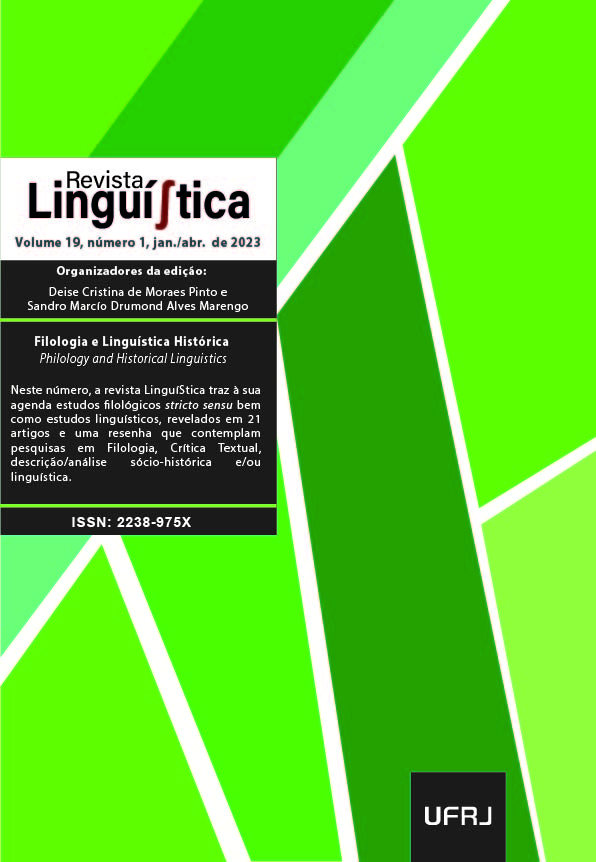Proclisis in neutral context and selective loss of the anaphoric accusative clitic in brazilian plays of 19th century
DOI:
https://doi.org/10.31513/linguistica.2023.v19n1a61297Keywords:
Próclise, acusativo anafórico, português clássico, escrita brasileira oitocentista.Abstract
In the diachronic syntax theory, we investigate the evolution of proclisis in matrix clauses with fronting constituents, in the ([XP])[XP]V context, correlating this evolution to subject ordering and realization and to the selective loss of the anaphoric accusative in 19th century Brazilian writing. The central hypothesis is that in 19th century Brazilian writing there is evidence of a “lost” grammar of Portuguese, or a V2-type language without restrictions for subject inversion and consistent null subject (pro-drop), such as Classical Portuguese (PCl). The proclisis generated by the grammar of Brazilian Portuguese (BP) begins to appear more expressively in texts written from the second half of the 19th century. This reflects properties of a V2-type language with restrictions on subject inversion and partial null subjects. The analysis shows that the writing of 19th century authors presents a rich system of anaphoric accusative clitic with a small increase in the frequency of the null object in texts from the end of the first half of the nineteenth century, which may be associated with CP or European Portuguese (EP) grammar. The results of an investigation of these phenomena in the same sample may bring important elements to find in the Brazilian writing of 1800 evidence of Classical Portuguese grammar.
Downloads
Published
Issue
Section
License
Copyright (c) 2024 Revista Linguí∫tica

This work is licensed under a Creative Commons Attribution-NonCommercial 4.0 International License.
Authors who publish in the Revista Linguí∫tica agree with the following terms:
The authors maintain their rights, ceding to the journal the right to first publication of the article, simultaneously submitted to a Creative Commons license permitting the sharing with third-parties of published content as long as it mentions the author and its first publication in the Revista Linguí∫tica.
Authors may enter into additional agreements for the non-exclusive distribution of their published work (for example, posting in online institutional or non-profit repositories, or book chapters) so long as they acknowledge its initial publication in the Revista Linguí∫tica.

The journal Revista Linguí∫tica is published by the Post-Graduate program in Linguistics of UFRJ and employs a Creative Commons - Attribution-NonCommercial 4.0 International (CC-BY-NC).









